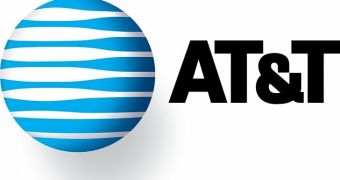AT&T is making a fool of itself as it urged the Federal Communications Commission to avoid reclassifying broadband providers as common carriers, as supporters of net neutrality want.
The company argues that reclassifying ISPs under Title II would force giant changes in the peering and interconnection markets.
“For example, if broadband Internet access service is a telecommunications service, then broadband Internet access providers could be entitled to receive transport and termination fees under section 251(b)(5).15. The Commission could not avoid this occurrence by establishing a bill-and-keep regime because, unlike voice traffic, Internet traffic is asymmetric,” reads a letter wrote by Robert Quinn, Senior Vice President.
“And because Internet traffic would now be subject to reciprocal compensation, virtually every settlement free peering arrangement would have to be replaced by newly negotiated arrangements implementing the reciprocal compensation provisions of the Communications Act,” he continues.
The company also claims that the reclassification would bring lots of new requirements for ISPs that don’t directly serve consumers.
Critics are, of course, slamming AT&T’s position, saying that the entire thing is nonsense. If the FCC reclassifies broadband providers, these companies become open to common carrier rules. Basically, the FCC would once more be able to compel them to abide by net neutrality rules and to stop making deals like the one Comcast and Verizon signed with Netflix to push its content to the Internet fast lane.
Under the net neutrality principles, companies are not allowed to discriminate against content or customers and they’re not allowed to throttle with Internet speeds. Basically, they have to do their jobs and allow subscribers to access whatever content they want under the best conditions.
“As usual, AT&T's positions are laughable at best—though disingenuous is more like it. Nothing in Title II says that every last provision has to apply to any Title II service. That's the whole point of forbearance. The fact that broadband providers could be entitled to something doesn't mean they actually are entitled to it, or that AT&T's cost-causation story is true,” Matt Wood, policy director for Free Press, told ArsTechnica.
The entire situation can be blamed on a decision taken by a federal court decision earlier this year that prohibited the FCC to impose rules on ISPs, even if these are simple prohibitions against blocking web services and Internet fast lanes.

 14 DAY TRIAL //
14 DAY TRIAL //